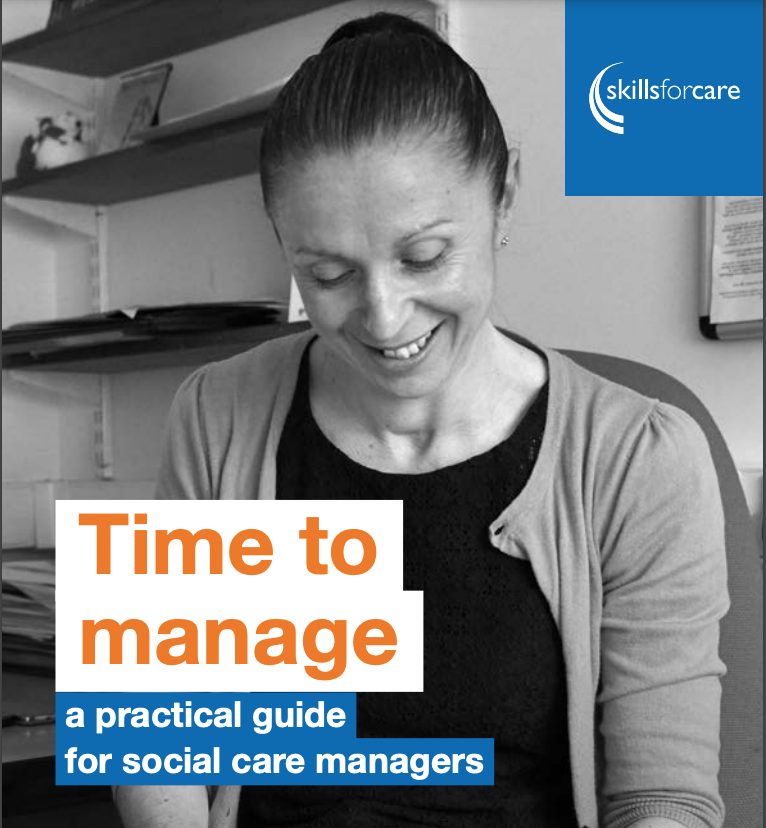@2021 invictIQ is a venture by Sprint Consultancy. All rights reserved. Privacy Policy.

10 Time-saving tips for caregivers and care providers
by Mark Topps
Time is never on our side, and even more so when you are caring for someone. Here are my ten tips to help you save time as a caregiver or care provider.
- Routine
Routine is key and will help you and the person being supported to know what is going to happen and when.
As a care provider the people in your care should have detailed care plans, with the times and support needs clearly detailed.
As a caregiver to a loved one, this is slightly harder as you will likely be living with the person, however managing your time is crucial, so that you can put time in for yourself.
Routine could include mealtimes, medication times, leisure activities etc.
- Utilise Technology
Love it or hate it, technology is here to stay and proven to cut time vs paper and pen. There are many things you may find technology beneficial for, including to-do lists, diarising events, shopping lists, healthcare appointments, communication and much more. A great piece of technology for all caregivers and support workers who are on the go the whole time is a reminder app for appointments, dates etc.
If the person being supported doesn’t mind, consider using virtual appointments so that you save time in travelling to and from appointments.
When it comes to the apps on our phone, be aware of the notifications from social media and games as they are designed to pull us back into our devices, so where possible turn these off and prevent distractions. Care providers should be discouraging mobile phones whilst at work, so having them out of sight and out of mind will ensure that the teams are focused on the support they are providing to the people in their care.
- Meal Planning
I see meal prepping all the time on my social media, and I feel a bit of a fraud writing this, but meal prepping will save so much time further down the line. When looking at meals, are there any you could bulk cook and then freeze for a later date? Some easy to make but freezable meals are bolognaise, lasagne, casseroles, shepherd’s pie and crumbles.
- Online Shopping Vs In Store
There are pros and cons of each of these. Looking at saving time, having your groceries and shopping delivered will save time and allow you to focus on other things however as a caregiver you need to think about your own wellbeing, and whether getting out of the house, even to pop to a local shop for milk or bread will give you the much needed break you need.
- Enable rather than disable
Enabling the person you are supporting to do more for themselves will maintain their independence and therefore reduce the reliance on you needing to be there. Simple adaptions around the home such as grab bars, ramps and assistive technology can all help. It is important that you seek professional advice from an occupational therapist and/or physiotherapist to review the living conditions and what adaptations can be made.
With regards to enabling the person to do things for themselves, it could be something small, but those two minutes her and two minutes there will soon add up.
- Prioritise self-care (Caregivers and Unpaid Carers)
Being a caregiver is a very demanding role and its crucial that you prioritise self-care so you have time for yourself, to do the things you like to do and to recharge the batteries. Where possible try to lighten the load and share responsibilities with other family members or friends and seek professional support to prevent burnout.
- Automate Bills
Nowadays most bills are automated but if you are like my parents, you will still rather receive the bill and then pay it when it comes through, however having direct debits will save you time juggling the finances. As a caregiver, the benefits received by government will often not cover the bills, and its important that you seek financial assistance as there are grants and offerings out there to help ease the financial burdens.
- Prioritise Tasks
Create a to do list and prioritise the order in which things need to be done. Believe it or not, doing one thing at a time is quicker than trying to do bits here and there relating to multiple tasks. It is okay to delegate tasks, so make sure you free up your time by getting others who have more to do things to help out.
Lots of people believe that prioritising tasks means you need to multitask and that isn’t the case. Be mindful of multitasking as often this can take up more of your time than you intended.
- Track your time
This sounds silly, however time escapes from us all so make sure you forecast how long something will take to do and track your time on it. Having a schedule of tasks that need to be done with timings next to them helps a lot of people. If you encompass the times that you will be caring for someone and provide those times to the person, they will also know when to expect you and are less likely to disturb you.
It is okay to say no, but it’s not always easy to do. Saying yes to everything may make you feel better however will overload your capabilities and will lead to burnout.
- Stay informed
Stay updated on medical conditions, any available resources, changes in guidance and regulations, support groups etc. Knowledge is empowering and can lead to better decision making, ultimately saving time and reducing stress.
There are many tips to help you save time, and I hope these ten have been a starting point. There is no wrong or right answer, it is what works for you and the person being supported.
MORE ARTICLES

Mark Topps is a social care leader who has worked in the care industry since 2004 and is currently working as a regional support manager. He regularly advocates, appearing on television, radio and podcasts and has started many campaigns for change in legislation and culture within the industry. Mark is the co-founder of The Caring View which is a social care podcast, YouTube show and free resource initiative for the sector. He also co-founded The Health and Social Care Club, which is an audio event hosted on LinkedIn. Mark is also the social media and marketing director at the National Association of Care and Support Workers.
Share
Sign up for our newsletter

